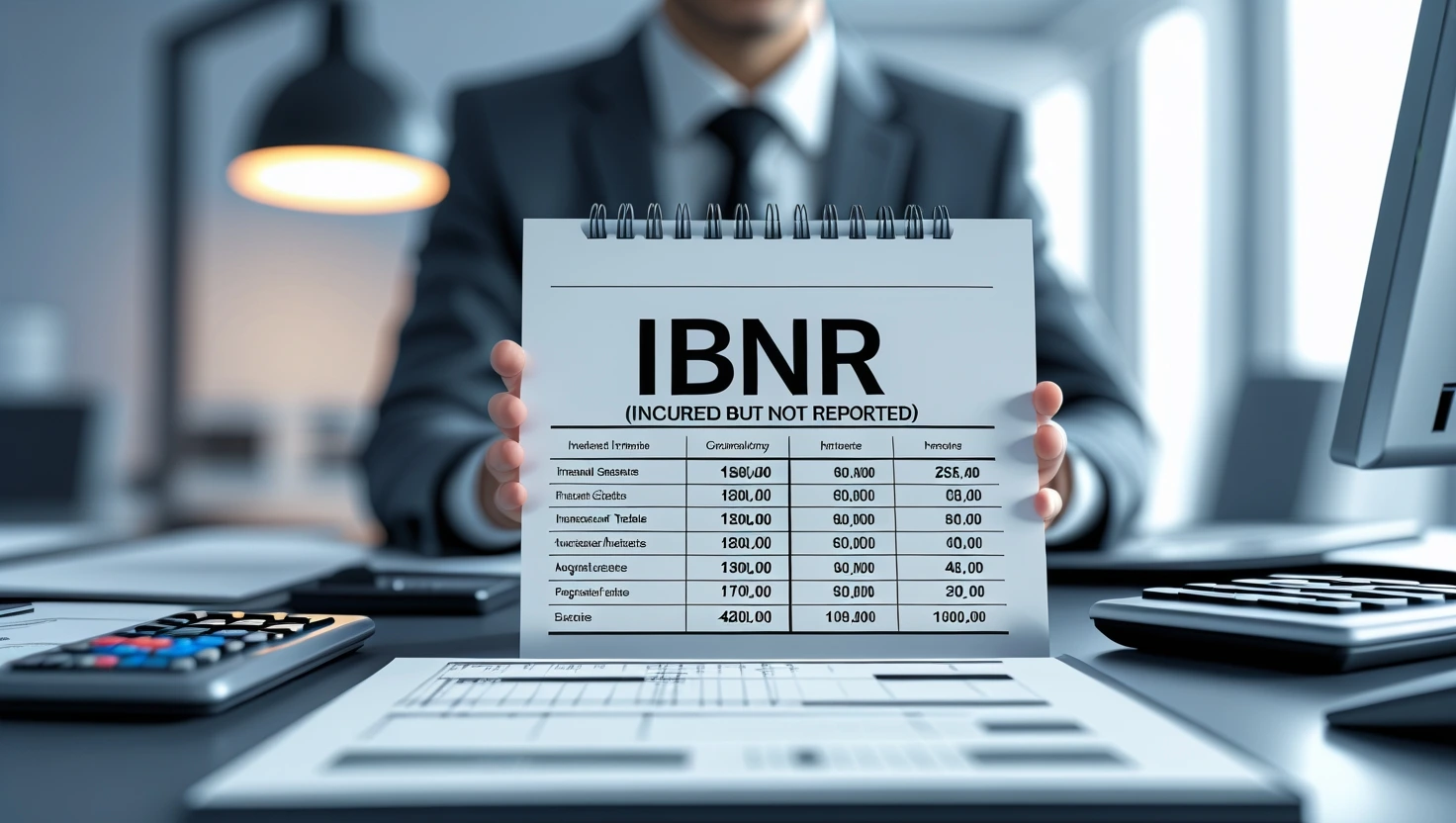
What Is IBNR? #
IBNR stands for Incurred But Not Reported. It refers to costs or claims that occurred but have not yet been recorded. Businesses, especially in insurance, healthcare, and manufacturing, often deal with IBNR. Financial records must include these claims to provide an accurate picture of a company’s liabilities.
Why IBNR Matters for Small Businesses #
Helps in Financial Planning
Small businesses need to keep track of their potential future costs. Properly accounting for IBNR ensures that a company does not underestimate its liabilities because unreported claims may emerge later.
If a factory worker gets hurt, they might delay their claim filing. However, the company should still estimate the potential cost of that claim in its records. Failing to do so can create financial problems later.
Prevents Unexpected Expenses
If a business does not account for IBNR, it may face unexpected expenses later. Keeping money set aside for potential claims helps avoid financial surprises.
Ensures Compliance with Regulations
Many financial rules require businesses to report all liabilities accurately. Accounting for IBNR ensures compliance with Indian Accounting Standards (Ind AS) and International Financial Reporting Standards (IFRS).
Builds Stakeholder Trust
Investors, suppliers, and customers trust businesses more when financial records are accurate and transparent. A well-managed IBNR system increases confidence in a company’s financial health.
Key Features of IBNR #
- Recognizes Claims That Are Not Yet Reported: IBNR helps businesses estimate costs for claims that have happened but are not yet reported. This prevents underreporting liabilities.
- Helps in Setting Aside Financial Reserves: Businesses set aside funds for unexpected claims. This ensures they can cover costs when claims arise in the future.
- Involves Actuarial Methods: To calculate IBNR, experts use actuarial methods, which involve statistical analysis and predictions of future claims.
- Links to Business Insurance: Companies use IBNR to adjust their business insurance plans. By estimating future claims, businesses can ensure they have enough insurance coverage.
How IBNR Helps Businesses Grow #
- Improves Financial Accuracy: Correctly estimating IBNR leads to accurate financial statements. This helps businesses gain investors’ trust and secure loans.
- Aids Risk Management: By predicting possible claims, businesses can prepare better and avoid financial shocks.
- Ensures Legal Compliance: Financial rules require businesses to report liabilities properly. Managing IBNR helps avoid legal trouble and penalties.
- Supports Better Budgeting: When businesses set aside money for IBNR, they manage cash flow better. This helps them allocate funds to different needs effectively.
- Strengthens Business Stability: IBNR prevents financial shocks from sudden expenses, keeping the company safe from unexpected financial troubles.
Easy Steps to Manage IBNR #
Gather Data on Past Claims: Look at past claims to spot patterns. This helps predict future claims.
Choose a Prediction Method: Businesses use different actuarial methods to estimate IBNR, such as:
- Chain-ladder method (analyzes past trends)
- Bornhuetter-Ferguson method (uses past and expected trends)
Set Financial Reserves: Based on predictions, decide how much money to set aside for future claims.
Review Estimates Regularly: IBNR values change over time. Businesses should review and adjust estimates to stay accurate.
Keep Records Updated: Maintain clear documentation to ensure financial transparency and meet compliance guidelines.
Integrate IBNR with Accounting Systems: Use accounting software to update IBNR automatically and keep financial records accurate.
Get Expert Advice: Hire accounting or actuarial professionals to improve accuracy in IBNR estimation.
Best Practices for IBNR Management #
- Update IBNR estimates regularly to prevent errors.
- Use technology like accounting software to simplify IBNR calculation.
- Keep proper records for audits and future reference.
- Train employees to understand IBNR and how it affects the business.
- Create a financial safety net for unforeseen claims.
How Vyapar App Helps #
- Expense Categorization – Helps segregate costs to ensure all liabilities are recorded properly.
- Multi-User Access – Allows teams to update financial records, reducing unreported expenses.
- Automated Expense Tracking – Records transactions in real-time to track unreported costs.
- Financial Reporting – Generates reports to identify potential IBNR liabilities.
FAQ’s: #
Is IBNR only for insurance companies?
No. Any business that faces delayed claims or expenses can use IBNR, including retail, manufacturing, and healthcare businesses.
How can small businesses track IBNR?
Small businesses can use accounting software to automate IBNR tracking.
Do I need a financial expert to handle IBNR?
Not always. If your business is small, accounting software can help. However, for complex IBNR cases, consulting a professional is a good idea.
How often should businesses check IBNR estimates?
A business should review its IBNR calculations regularly, at least quarterly or yearly.
Conclusion #
Understanding and managing IBNR helps small businesses prepare for future claims, improve financial stability, and follow regulations.
Use Vyapar App to handle billing, stock & payments all in one place.
Make bills, track stock, and handle payments in one place.
